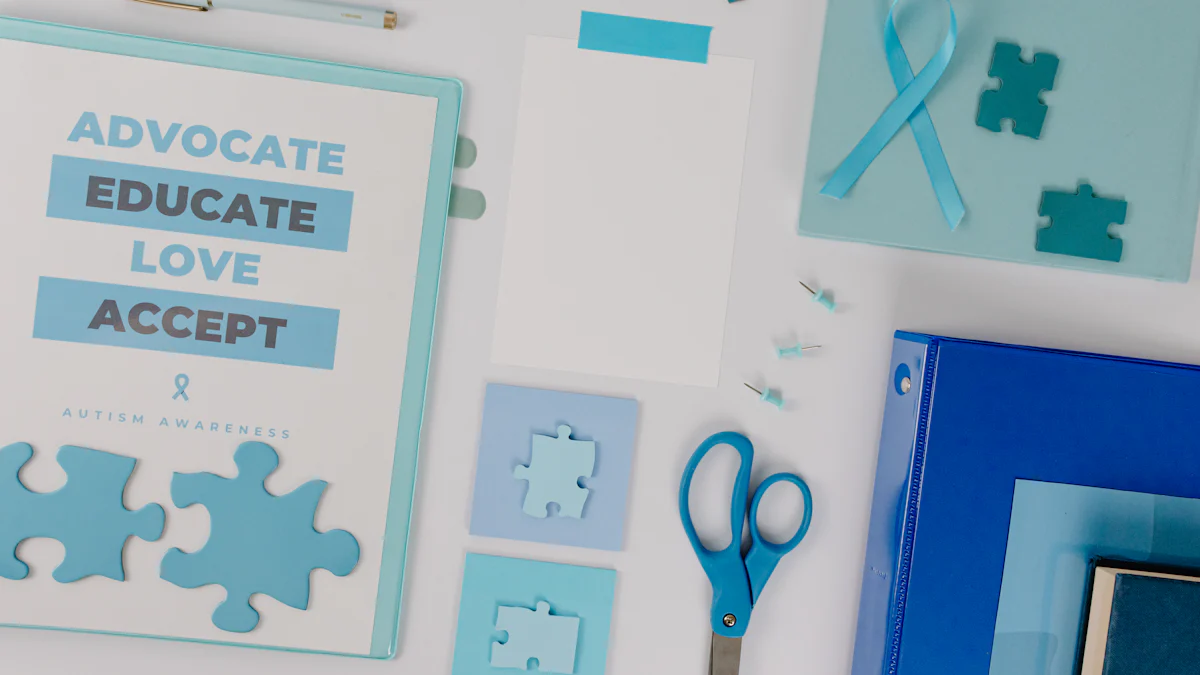Essential Job Interview Tips for Autistic Individuals
Try Aihirely for
Smarter Interview Prep
Experience real-time AI support tailored to your Resume.
Boost your confidence and ace every question with
AI Mock Interview.

Image Source: pexels
Job interviews can feel overwhelming, especially if you’re autistic. You might struggle with vague, open-ended questions or feel uncomfortable with social cues like eye contact. Sensory sensitivities, such as bright lights or loud noises, can add to the stress. But here’s the good news: with preparation and the right strategies, you can overcome these hurdles. Remember, your unique strengths matter. Even if autism and casnmt get pass job interview challenges seem daunting, success is within reach.
Key Takeaways
-
Learn about the company and job before the interview. Know their goals and how you match them.
-
Practice answering usual interview questions to feel ready. Use notes or pictures to plan your answers.
-
Ask for help if you need it. Employers must try to meet your needs for a better interview.
Preparation Before the Interview

Image Source: pexels
Researching the Company and Role
Understanding the company and the role you’re applying for is a great first step. Start by visiting the company’s website. Look at their mission, values, and recent projects. This helps you understand what they care about and how you might fit in. Review the job description carefully. Highlight the skills and qualifications they’re looking for. If you’re unsure about anything, write it down as a question to ask during the interview.
You can also use tools like visual learning aids or personalized teaching stories to clarify expectations. These tools can make the information easier to process. If you prefer hands-on learning, try role-playing with a friend or mentor to practice discussing the company and role.
Practicing Common Interview Questions
Practicing interview questions can help you feel more confident. Start with common ones like, “Why do you want to work here?” or “What are your strengths and weaknesses?” Write down your answers and practice saying them out loud. This helps you get comfortable with your responses without sounding rehearsed.
You can also create a cheat sheet with key points you want to mention. Focus on turning the interview into a conversation about your skills. If you struggle with social interactions, consider joining a social skills group or practicing with a job coach.
Organizing Materials and Documents
Being organized can reduce stress. Prepare copies of your resume, a list of references, and any other documents the interviewer might need. Write down examples of your accomplishments and questions to ask the interviewer. Keep everything in a folder or planner so it’s easy to access.
If you’re worried about forgetting something, use visual cues or scripts as reminders. A clutter-free workspace can also help you stay focused, especially if the interview is virtual.
Planning Your Route and Schedule
Planning ahead can make a big difference. If the interview is in person, map out your route and allow extra time for delays. For virtual interviews, test your technology beforehand. Make sure your camera, microphone, and internet connection work properly.
Choose your outfit the night before to avoid last-minute stress. Wear something professional that makes you feel confident. If unexpected changes happen, remind yourself to stay flexible. Preparing for comfort, like bringing water or a stress ball, can also help you stay calm.
Managing the Interview Process

Image Source: pexels
Using Body Language Effectively
Body language can feel tricky, but small adjustments can make a big difference. You don’t need to force eye contact if it feels uncomfortable. Instead, focus on looking at the interviewer’s forehead or nose. This can help you stay engaged without feeling overwhelmed. If possible, position your chair at an angle. Sitting side-by-side instead of directly facing someone can reduce pressure.
Pay attention to your posture. Sitting up straight shows confidence, even if you feel nervous inside. If you’re unsure about how to use body language, practice with a friend or mentor. They can give you feedback and help you feel more prepared.
Communicating Clearly and Confidently
Clear communication starts with preparation. Practice answering common interview questions so you feel more at ease. Use scripts or visual cues to keep your thoughts organized during the interview. Reframe the experience as a conversation about your skills. This mindset can help you feel less anxious.
Ask questions about the role or company to show interest. If verbal communication feels challenging, consider tools like communication apps or visual aids. These can help you express yourself more effectively. Practicing with a job coach or mentor can also boost your confidence.
Requesting Accommodations
You have the right to ask for accommodations that make the interview process more comfortable. For example, you can request fewer interviewers or ask for questions in advance. If bright lights or loud noises bother you, ask for a quieter, sensory-friendly space. Employers are legally required to consider these requests, so don’t hesitate to speak up.
If you’re worried about discrimination, remember that the ADA protects you. Practice explaining your needs with someone you trust. This can help you feel more confident when discussing accommodations with potential employers.
Managing Sensory Overload
Interviews can trigger sensory overload, especially in busy or noisy environments. Bright lights, strong scents, or prolonged eye contact might feel overwhelming. To manage this, try deep breathing exercises or bring a small item like a stress ball to help you stay calm.
If possible, ask for a sensory-friendly environment. This could mean dimmer lighting or a quieter room. Preparing for these challenges ahead of time can make the experience less stressful. Remember, it’s okay to take a moment to collect yourself if you feel overwhelmed.
Post-Interview Steps
Sending a Thank-You Email
Sending a thank-you email after your interview is a small step that can leave a big impression. It shows professionalism and reinforces your interest in the role. Here’s how to craft a great one:
-
Start with a polite greeting and thank the interviewer for their time.
-
Mention something specific from the interview, like a topic you discussed or a detail about the company that excited you.
-
Reiterate your enthusiasm for the position and briefly highlight why you’re a good fit.
-
Keep it concise—no more than a few paragraphs.
-
Send it within 24 hours of the interview.
If you’re autistic, personalizing your email can help you stand out. Be honest and true to yourself. For example, if you struggle with social cues, focus on direct and clear communication. You don’t need to follow conventional expressions of gratitude. Instead, let your unique voice shine through.
Reflecting on Your Performance
After the interview, take some time to reflect. Think about what went well and what could’ve gone better. Did you answer questions clearly? Were there moments where you felt confident? Write down your thoughts while they’re fresh.
This reflection isn’t about being hard on yourself. It’s about learning and growing. If you noticed areas for improvement, consider practicing those skills for future interviews. Celebrate your successes, no matter how small. Every interview is a step forward.
Following Up on the Hiring Decision
Waiting to hear back can feel nerve-wracking, but patience is key. If the interviewer gave you a timeline, wait until that period has passed before following up. If no timeline was mentioned, wait at least a week but no more than two weeks.
When you follow up, keep your message polite and professional. Thank them again for the opportunity and ask if there’s an update on the hiring decision. A simple follow-up shows you’re proactive and still interested in the role.
Remember, the hiring process can take time. Use this waiting period to focus on other opportunities or continue building your skills.
Additional Considerations
Autism and Cannot Get Past Job Interview: Disclosure Decisions
Deciding whether to disclose your autism to a potential employer can feel tricky. It’s a personal choice, and there’s no one-size-fits-all answer. To help you weigh your options, here’s a breakdown of the pros and cons of different disclosure timings:
| Timing of Disclosure | Pros | Cons |
|---|---|---|
| On the Application/Cover Letter | Lets you relax about the employer finding out. | May harm chances before showing your strengths. |
| At the Interview | Opportunity to answer questions about autism. | Focus on diagnosis might overshadow strengths. |
| After Hired but Before Work Starts | Legal action possible if hiring decision changes. | Employer may distrust for not disclosing earlier. |
| After Beginning Work | Chance to prove yourself first. | Anxiety from keeping it a secret. |
| After a Problem | Opportunity to explain after proving yourself. | Could reinforce myths about autism. |
| Never | Less chance of discrimination. | Risk of being fired for undisclosed reasons. |
If you choose to disclose, remember that the Americans with Disabilities Act (ADA) protects you. Employers must provide reasonable accommodations once you’ve disclosed your condition. However, if you don’t disclose, you’ll be held to the same performance standards as everyone else.
Requesting Accommodations During the Process
Asking for accommodations can make the hiring process more comfortable. Here are some effective ways to request them:
-
Ask for fewer interviewers to reduce anxiety.
-
Request interview questions in advance to prepare better.
-
Suggest starting with a phone interview if in-person feels overwhelming.
When making requests, use clear and practical language. For example, instead of explaining your entire diagnosis, focus on what you need to succeed. Employers often appreciate straightforward communication. Many companies don’t require medical documentation during the hiring stage, so informal discussions can work well.
Remember, this process should feel like a collaboration. Talk openly with HR or the hiring manager about your needs. If the company has more than 15 employees, they’re legally required to comply with the ADA. Smaller organizations might follow local laws, so it’s worth checking.
Leveraging Your Unique Strengths
Your autism gives you strengths that many employers value. Highlighting these during interviews can set you apart. For example, you might excel in roles requiring attention to detail, like data analysis or quality control. Your ability to focus deeply on tasks can boost productivity and efficiency.
Here are some strengths you can emphasize:
-
Creativity: You think outside the box and come up with innovative ideas.
-
Memory: Your exceptional recall helps you retain and apply information.
-
Problem-solving: You find unique solutions to challenges.
-
Technical skills: You thrive in tech-related roles like programming or engineering.
During the interview, share examples of how these strengths have helped you succeed in the past. For instance, if you’ve used your attention to detail to catch errors others missed, mention it. Employers value candidates who know their strengths and can apply them effectively.
Preparation and self-advocacy are your keys to success. When you prepare thoroughly and advocate for your needs, you set yourself up for a strong performance. Believe in your abilities and approach interviews with confidence. Remember, your unique strengths matter. With the right mindset and strategies, you can achieve your career goals. 🌟
FAQ
What should I do if I feel overwhelmed during the interview?
-
Take a deep breath and pause.
-
Politely ask for a moment to collect your thoughts.
-
Use calming techniques like squeezing a stress ball.
💡 Tip: It’s okay to take breaks. Employers value self-awareness and composure.
How can I explain gaps in my resume?
Be honest and focus on growth. Mention skills you developed during that time. For example, say, “I used this period to improve my technical skills through online courses.”
What if I forget an answer during the interview?
-
Stay calm and ask for a moment to think.
-
Say, “That’s a great question. Let me take a second to gather my thoughts.”
-
Focus on answering clearly.
✅ Note: Interviewers appreciate thoughtful responses over rushed ones.
